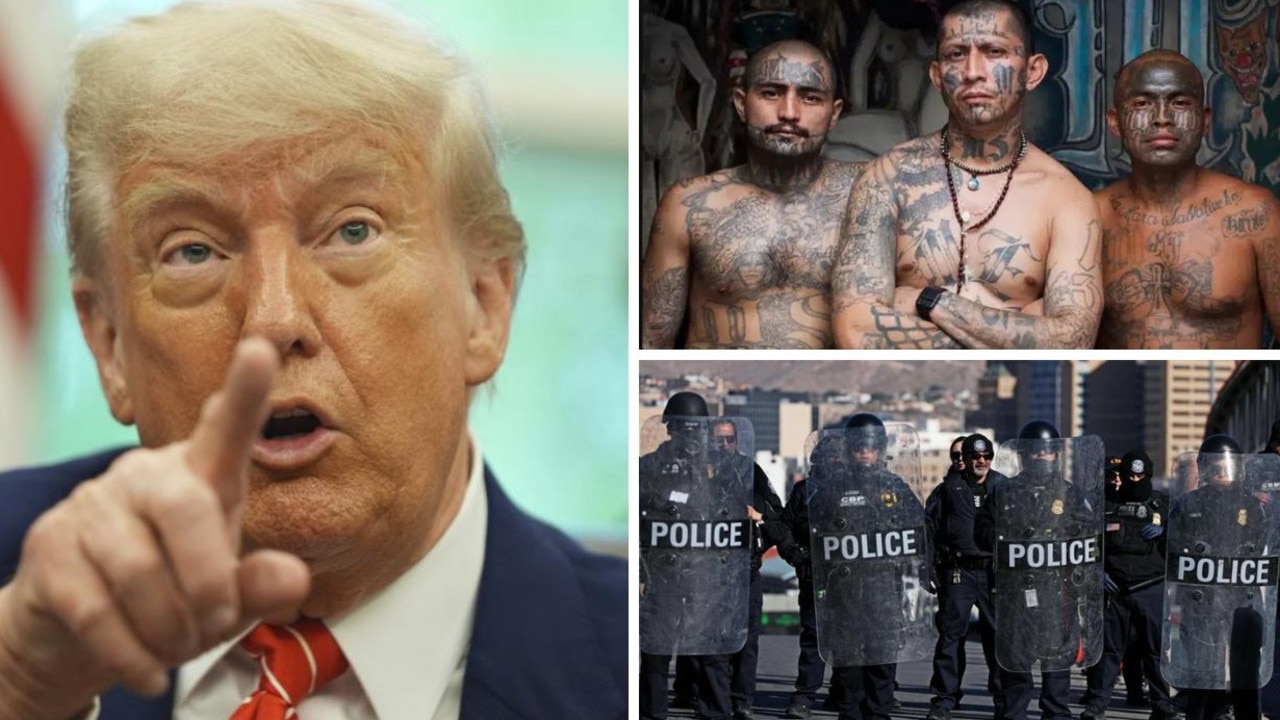Covid-19 world: Novavax vaccine ‘82 per cent effective’ in teens
Novavax would be the second vaccine for 12 to 17-year-olds in the US after Pfizer, which has shown certain risks for teens like heart inflammation.
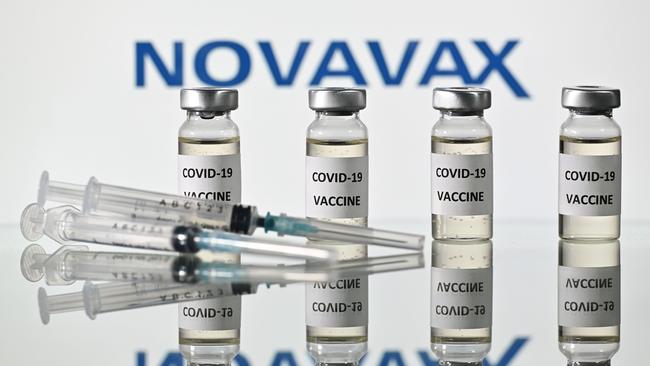
World
Don't miss out on the headlines from World. Followed categories will be added to My News.
Novavax said its Covid vaccine was 82 per cent effective among adolescents during the period when the Delta variant was dominant, and the US biotech now plans to submit for regulatory approval in this age group.
The two-dose vaccine, which is based on synthetic proteins that mimic the spikes that dot the surface of the virus, was found to be safe and effective among more than 2,200 adolescents aged 12 through 17 as part of a phase three clinical trial carried out in the US, the company said in a statement.
“We are encouraged by the results in this adolescent population given the ongoing need for alternative vaccine options,” said Filip Dubovsky, the company’s chief medical officer.
“We believe the Novavax vaccine could be a differentiated option for this younger population given its established protein-based technology already used in other vaccines, and the positive responses demonstrated against variants.” The Pfizer vaccine is currently the only authorised shot for teens, but comes with certain risks, particularly for adolescent males, of heart inflammation.
But these rare concerns only became clear once the vaccine was administered to millions of people, rather than in clinical trials that test only thousands.
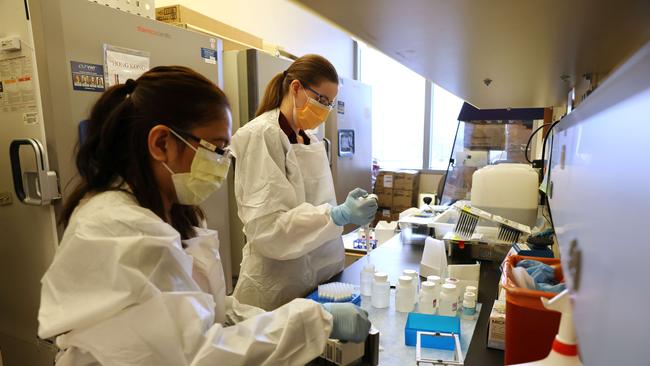
Maryland-based Novavax was an early frontrunner in the race to develop a Covid vaccine, but the company was beset by production difficulties that impeded authorisation.
It finally submitted a request to US regulators at the end of January to use its vaccine in adults, which has already been approved in the European Union and Britain, leading to its recognition by the World Health Organisation.
NEW FOUR-MINUTE TEST MORE ACCURATE THAN RATS
Scientists say they have developed a new coronavirus test that is as accurate as a PCR lab test but gives results within four minutes.
Polymerase chain reaction (PCR) tests are widely considered the most accurate and sensitive for the virus that causes Covid-19, but they usually take several hours.
Rapid Antigen Tests, or RATs, return results within minutes but their accuracy is questionable, leaving countries like Australia with severe backlogs in PCR testing in the face of heavy testing demand, fuelled by the explosive spread of the highly transmissible Omicron variant.
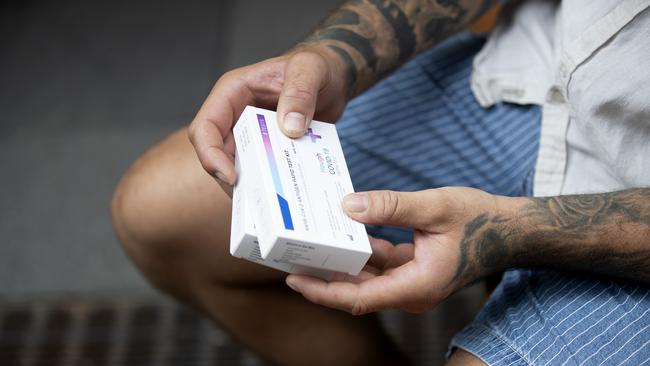
Researchers from Fudan University in Shanghai say they have a solution. In a peer-reviewed article published Monday in the journal Nature Biomedical Engineering, the team said their sensor — which uses microelectronics to analyse genetic material from swabs — can reduce the need for time-consuming Covid lab tests.
“We implemented an electromechanical biosensor for the detection of SARS-CoV-2 into an integrated and portable prototype device, and show that it detected (virus RNA) in less than four minutes,” the team said in the paper, referring to the official name of the Covid pathogen.
The researchers said their method offers speed, ease of operation, high sensitivity and portability.
Their trial involved taking samples from 33 people in Shanghai who were infected with the coronavirus, with PCR tests conducted in parallel.
The results from their method were a “perfect” match with the PCR tests, according to the article.
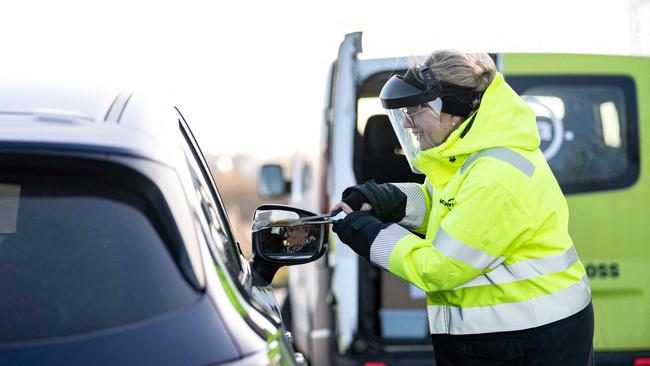
Their study involved testing the new method on 54 samples, which included people with fever who did not have the coronavirus, those with influenza, and healthy volunteers.
Those cases did not yield any false positives, the team said. The Fudan researchers said that once developed, their testing device can be used for quick testing in a variety of situations, including airports, health facilities and “even at home”.
PCR tests are not only slow, but they also require lab infrastructure that can be limited in many countries, reducing the number of cases that can be handled each day.
And while rapid diagnostic tests have now become available in many parts of the world, they are generally less accurate.
China is one of the world’s biggest makers of coronavirus test kits. According to customs data, it exported $1.6 billion worth of test kits in December, a 144 per cent increase from the previous month.
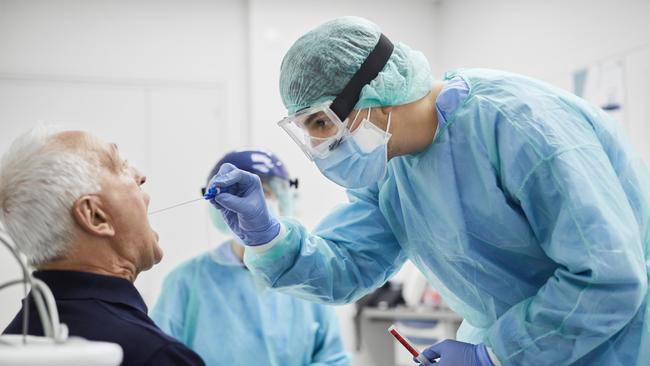
INDONESIA TESTS NEW COVID VACCINE
Indonesia has started testing a homegrown Covid-19 vaccine on humans after getting the green light from the drug regulator as the country faces a rising wave of virus cases.
Research on the Merah Putih (“Red White”) vaccine – named after the colours of the Indonesian national flag – is led by Airlangga University and Biotis Pharmaceutical Indonesia.
The project has experienced delays since starting in 2020, but authorities are now hoping to authorise its use by the middle of 2022 if the trials are successful.
Health Minister Budi Gunadi Sadikin said the drug, set to be rolled out in the latter stages of Indonesia’s vaccination campaign, could be donated to other nations, as a booster jab or as a vaccine for children aged three to six.
“I have discussed this matter with the president and he has agreed to use this vaccine as a donation to countries in need,” Sadikin said at a launch event for the human trials in Surabaya on Wednesday.
The first and second phases of the clinical trials will involve 90 and 405 adult volunteers respectively.
The Merah Putih vaccine has been granted a “halal” certification from the Indonesian Ulema Council, the Muslim majority nation’s top religious clerics body, according to the dean of Airlangga University Mohammad Nasih.
“We hope with this halal certification, the public confidence to use this vaccine will be higher,” Nasih told reporters.
Indonesia has approved 13 vaccines and boosters but has primarily used the Chinese-made jabs, and has struggled to procure enough doses for its population of more than 270 million people.

The Indonesian government has stressed the importance of developing and manufacturing national vaccines since the beginning of the pandemic.
The country was ravaged by Covid-19 in July last year as the Delta variant swept the country.
Daily cases declined significantly at the end of the year but the spread of Omicron recently brought the country back to 30,000 confirmed cases a day.
In total, Southeast Asia’s largest economy has reported over 4.5 million confirmed cases with nearly 145,000 deaths.
Vaccination rollout is also relatively slow with around 48 per cent of the population vaccinated with two jabs and only five million with a booster shot.
WHO PLEADS WITH RICH NATIONS FOR $16b
The World Health Organization says Covid-19 could be finished off as a global health emergency this year – if rich countries cough up $16 billion.
WHO has implored wealthy nations to pay their fair share of the money needed for its plan to conquer Covid-19, as a matter of urgency – and warned of dire consequences for all if poorer countries did not get protection.
It said a rapid cash injection into its Access to Covid Tools Accelerator could end the global health emergency this year.
The WHO-led ACT-A is aimed at developing, producing, procuring and distributing tools to tackle the pandemic: vaccines, tests, treatments and personal protective equipment.
ACT-A gave birth to the Covax facility, designed to ensure poorer countries could access eventual vaccines, correctly predicting that richer nations would hog doses coming off the production lines.
Covax delivered its billionth vaccine dose in mid-January.
ACT-A needed $23.4 billion for its program from October 2021-September 2022 but only $800 million has been raised so far.
The scheme therefore wants $16 billion upfront from wealthy nations “to close the immediate financing gap”, with the rest to be self-funded by middle-income countries.
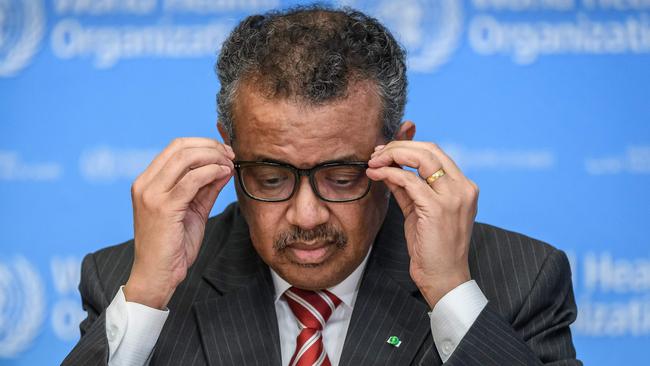
WHO chief Tedros Adhanom Ghebreyesus said the rapid spread of the Omicron variant made it all the more urgent to ensure tests, treatments and vaccines are distributed equitably.
“If higher-income countries pay their fair share of the ACT-Accelerator costs, the partnership can support low- and middle-income countries to overcome low Covid-19 vaccination levels, weak testing, and medicine shortages,” he said in a statement.
“Science gave us the tools to fight Covid-19. If they are shared globally in solidarity, we can end Covid-19 as a global health emergency this year.”
Just 0.4 per cent of the 4.7 billion Covid tests administered globally during the pandemic have been used in low-income countries.
Meanwhile only 10 per cent of people in those nations have received at least one vaccine dose.
The WHO said the vast inequity was not only costing lives and hurting economies, it was also risking the emergence of new, more dangerous variants that could rob current tools of their effectiveness and set even highly-vaccinated populations back by many months.
ACT-A has come up with a new “fair share” financing model on how much each of the world’s wealthy countries should contribute, based on the size of their national economy and what they would gain from a faster recovery of the global economy and trade.
On the 2020-21 ACT-A budget, only six countries – Canada, Germany, Kuwait, Norway, Saudi Arabia and Sweden – met or exceeded their fair-share commitments.
US MOVES TO DITCH FACE MASKS, ‘ACCEPT COVID’
A growing number of US states have announced plans to lift mask mandates in indoor places and schools as coronavirus infections decline in America.
The announcements signal a move towards a policy of accepting Covid-19 as part of everyday life.
Mask-wearing became a political battleground in the US during the early days of the pandemic.
Many Democratic governors enforced strict mandates, while Republican-led states such as Texas and Florida banned the enforcement of face coverings.
California governor Gavin Newsom announced Monday evening that the state’s indoor mask mandate would end for vaccinated residents on February 15.
“CA’s case rate has decreased by 65 per cent since our Omicron peak. Our hospitalisation have stabilised across the state,” tweeted Newsom.
“Unvaccinated people will still need to wear masks indoors. Get vaccinated. Get boosted,” he added.
Newsom’s announcement came after New Jersey governor Phil Murphy announced that children and staff would not need to wear masks in schools from March 7.
“This is not a declaration of victory as much as an acknowledgment that we can responsibly live with this thing,” he said, referring to the coronavirus.
In Connecticut, Governor Ned Lamont said he was recommending that school boards drop mandatory mask-wearing in schools after February 28.
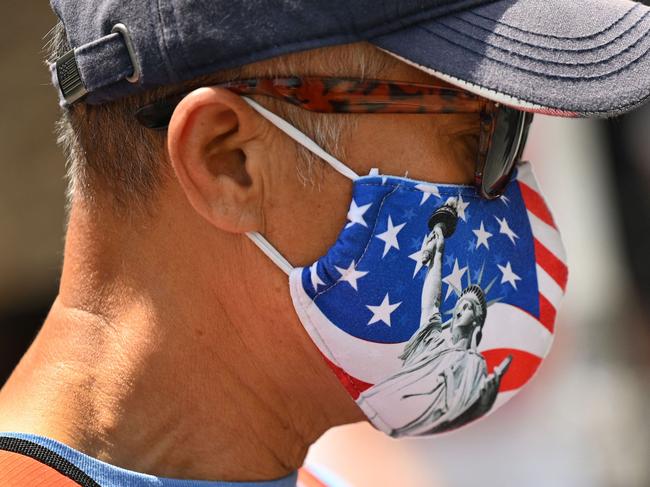
Delaware governor John Carney announced that his state’s indoor mask mandate would expire on Friday, and that masks in schools will end by March 31.
“We’re in a much better place than we were several weeks ago,” he wrote on Twitter.
In Oregon, Governor Kate Brown tweeted that she “will lift mask requirements no later than March 31.” New York, the early epicentre of America’s outbreak in spring 2020, has not yet announced any plans to lift its mask requirements, but Governor Kathy Hochul is expected to address the issue on Wednesday.
The varying measures highlight the disparate nature of mask rules, which can differ between local authorities in the heavily defederalized country.
The lifting of the mandates still allows individual school boards to require masks if they want to.
The federal Centers for Disease Control and Prevention (CDC), which Joe Biden’s administration follows, recommends that vaccinated people wear masks indoors if they are “in an area of substantial or high transmission.” Wearing a mask that covers the nose and mouth is required on planes, buses, trains and other forms of public transportation travelling into, within or out of the US.
The CDC also requires masks inside US transportation hubs such as airports and train stations.
The United States is currently recording about 73,000 new cases a day, down from a peak of about 800,000 a day in early January, according to the CDC.
More than 900,000 people have been killed by Covid-19 in the United States, according to the Johns Hopkins University coronavirus tracker.
Despite falling numbers of new cases linked to the Omicron variant, daily deaths are still averaging 2,300, according to government figures.
‘STATE OF EMERGENCY’ DECLARED IN CANADA TRUCKER BLOCKADE
The ongoing truckers’ protest in the Canadian capital is “out of control,” the Ottawa mayor said in announcing a state of emergency as the city centre remained blocked by opponents of draconian Covid measures.
The protesters, who first reached the capital on January 29, have parked their big rigs on city streets and put up tents and temporary shacks — paralysing the capital to the consternation of officials and the mounting frustration of many residents.
Mayor Jim Watson announced a state of emergency that “reflects the serious danger and threat to the safety and security of residents posed by the ongoing demonstrations and highlights the need for support from other jurisdictions and levels of government,” a statement from the city said.
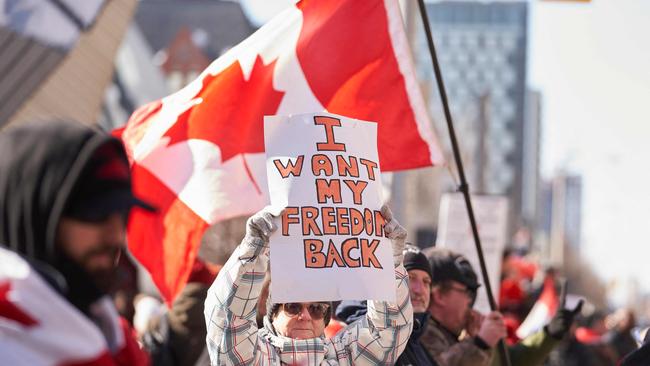
Earlier in the day, Watson had described the situation as “completely out of control,” adding that the protesters “have far more people than we have police officers.” “Clearly, we are outnumbered and we are losing this battle,” he told CFRA radio. “This has to be reversed; we have to get our city back.” Watson called the truckers “insensitive,” as they have continued “blaring horns and sirens and fireworks, and turning it into a party.” The demonstrations began as protests by truckers angry with vaccine requirements when crossing the US-Canadian border, but have morphed into broader protests against Covid-19 health restrictions and the government of Prime Minister Justin Trudeau.
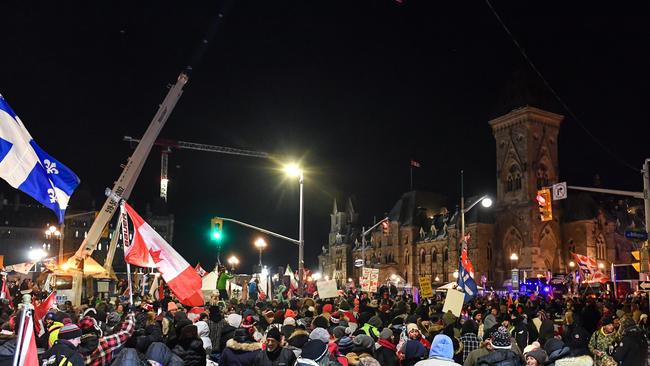
Locals have complained of the ceaseless sound of air horns and of being harassed, insulted or blocked by the protesters.
The truckers and their supporters have dug in, however, saying the protests will continue until the Covid-related restrictions are lifted.
Police on Sunday announced new measures to stop people from helping the protesters keep up their sit-in.
“Anyone attempting to bring material supports (gas, etc.) to the demonstrators could be subject to arrest,” the force tweeted, adding Sunday night that several arrests had been made.
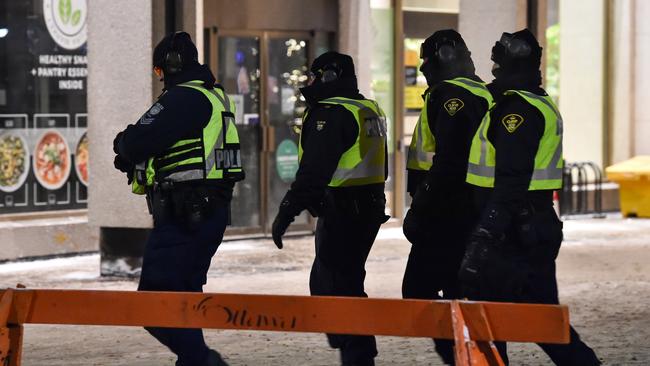
Similar, if smaller, demonstrations hit the cities of Toronto, Quebec City and Winnipeg on Saturday.
Police in Quebec City said some 30 big trucks were blocking a major artery and had been warned they would face fines if they did not move soon.

FIRST EUROPEAN COUNTRY TO ENFORCE JAB
Austrians over the age of 18 must be vaccinated against Covid-19 or face the possibility of a heavy fine, an unprecedented measure in the European Union.
The new measure, adopted on January 20 by Parliament, came into force on Saturday, local time, the culmination of a process that began in November in the face of the rapid spread of the Omicron variant.
The government decided to pursue its new, tougher approach despite criticism within the country.
“No other country in Europe is following us on compulsory vaccines,” said Manuel Krautgartner, who has campaigned against the new approach.
In neighbouring Germany, a similar proposal championed by the new Social Democrat Chancellor Olaf Scholz was debated last month in the lower house of parliament but many MPs still oppose the idea.

Despite the threat of such a drastic measure, the vaccination rate in Austria has still failed to take off, languishing below the levels seen in France or Spain.
The humanitarian association Arbeiter Samariter Bund, which oversees some vaccination sites in the capital Vienna, said there had an uptick in turnout this week.
“We recorded a small increase of around nine per cent compared to last week,” the organisation’s manager, Michael Hausmann, told AFP.
From the average of around 7,000 injections administered every day in the capital, only 10 per cent are a first dose, he said.
Non-vaccinated people are currently excluded from restaurants, sports and cultural venues.
But from now on they will also be subject to fines, which Melanie said was “unhealthy”.
The law applies to all adult residents with the exception of pregnant women, those who have contracted the virus within the past 180 days and those with medical exemptions.

For several weeks after the announcement of the new law, tens of thousands of people took to the streets to protest against what they regard as a draconian policy.
Critics have also questioned the need for compulsion given the milder nature of the Omicron variant.
Vaccination passes are now a reality in an increasing number of countries for certain professions or activities.
In Ecuador, it is compulsory, including for children over the age of five, a world first.
Before that, two authoritarian states in Central Asia — Tajikistan and Turkmenistan — mandated vaccination, as did Indonesia, even if less than half its population is actually vaccinated.

It comes as Turkish President Recep Tayyip Erdogan says he has tested positive for Covid. “After experiencing light symptoms, my wife and I tested positive for Covid-19. We have a mild infection thankfully,” he tweeted.
Meanwhile, Hong Kong posted a record number of new daily infections, sending officials scrambling to ramp up testing capacity and warning that a tightening of virus-control measures could be needed.
“Based on the current growth rate of cases, we estimate that (medical isolation) facilities will soon be unable to quarantine all patients,” health chief Sophia Chan said.
It comes as World Health Organisation chief Tedros Adhanom Ghebreyesus met with Chinese Premier Li Keqiang for talks on Covid-19, including on the stalled investigation into the pandemic’s origins.
“We also discussed the need for stronger collaboration on Covid-19 virus origins, rooted in science and evidence,” Tedros said.
Originally published as Covid-19 world: Novavax vaccine ‘82 per cent effective’ in teens


